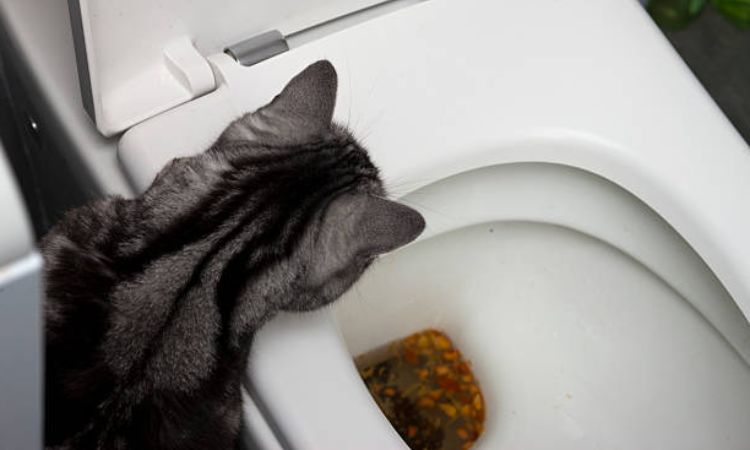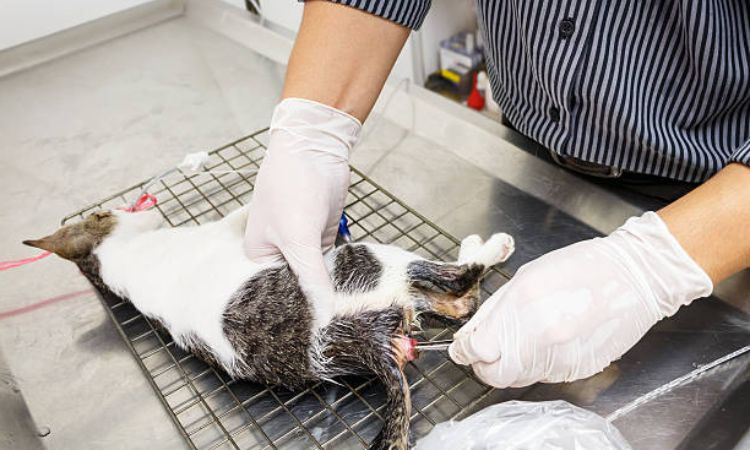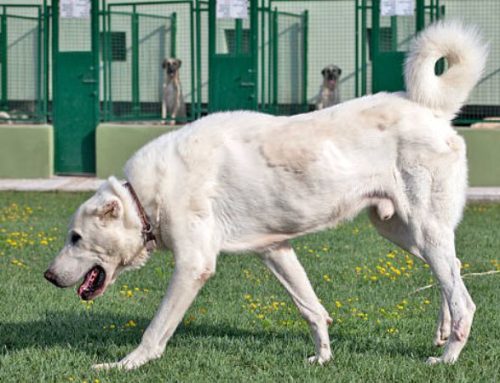Seeing blood in your cat’s stool can be alarming, and it’s natural to worry that something serious is wrong. In reality, there are many possible causes—some minor, some more severe—but many are treatable with the right care. Knowing what might be causing the problem and how to respond can help protect your cat’s health. This guide will walk you through what to do if your cat has bloody diarrhea and when it’s essential to contact a veterinarian.

Common Causes of Bloody Diarrhea in Cats
Blood in a cat’s diarrhea can be alarming, and while some causes are mild, others may require urgent veterinary care. Understanding the potential reasons can help you respond appropriately:
- Dietary issues: Sudden changes in food or food intolerances can irritate the digestive tract, leading to diarrhea with streaks of blood. Even introducing a new diet too quickly may trigger gastrointestinal upset.
- Intestinal parasites: Worms (such as hookworms and roundworms), Giardia, and coccidia can damage the intestinal lining, causing inflammation and bleeding. Regular deworming and parasite prevention are essential.
- Bacterial or viral infections: Pathogens like Salmonella, E. coli, or feline parvovirus (panleukopenia) can infect the gastrointestinal tract, resulting in bloody diarrhea often accompanied by vomiting, lethargy, and reduced appetite.
- Toxins or poisonous substances: Ingestion of harmful chemicals, medications (like NSAIDs), or toxic plants can damage the gut and disrupt blood clotting, producing blood in stools. Rodenticides are a particularly serious risk.
- Inflammatory conditions: Chronic inflammation, such as colitis or inflammatory bowel disease (IBD), can irritate the intestines and cause recurring blood in the diarrhea.
- Stress or anxiety: Cats are highly sensitive to changes in their environment. Moving house, boarding, loud noises, or disrupted routines can lead to stress-induced colitis, resulting in bloody diarrhea.
- Serious medical problems: Conditions like pancreatitis, intestinal blockages, or cancer can lead to significant gastrointestinal bleeding. These causes are often accompanied by additional symptoms such as vomiting, lethargy, loss of appetite, or weight loss.
If your cat exhibits bloody diarrhea—especially if it’s persistent, accompanied by other concerning symptoms, or occurs in kittens, seniors, or cats with pre-existing conditions—it’s critical to seek veterinary care promptly to determine the underlying cause and start treatment.
Immediate Steps to Take at Home
If you notice blood in your cat’s stool, there are several supportive steps you can take at home while you arrange veterinary care:
- Keep your cat hydrated: Ensure fresh water is always available and encourage your cat to drink regularly. Hydration is crucial, especially if your cat is experiencing diarrhea or mild vomiting.
- Temporarily withhold food: For generally healthy cats, you can consider withholding food for 12–24 hours to give their digestive system a short rest. Always check with your veterinarian before fasting, particularly for kittens, senior cats, or cats with ongoing health issues.
- Reintroduce a bland diet: After the fasting period, offer easily digestible foods such as boiled chicken (no skin or seasoning) and plain rice in small, frequent meals. Gradually reintroduce their normal diet over a few days if stools improve.
- Monitor stool closely: Keep track of your cat’s bowel movements, noting the frequency, color, and consistency of the stool. This information is invaluable for your vet in diagnosing the cause of bleeding.
Clean the litter box regularly to observe the stool carefully and catch any changes quickly. A clean environment also reduces stress and helps prevent further gastrointestinal irritation.

When to Call the Vet Immediately
Not all cases of blood in your cat’s stool are emergencies, but certain signs indicate that prompt veterinary attention is crucial. Knowing when to act quickly can help prevent serious complications and ensure your cat receives timely care.
1. Diarrhea with Lethargy, Vomiting, or Loss of Appetite
If your cat has bloody diarrhea and is also lethargic, vomiting repeatedly, or refusing to eat, this could indicate a significant underlying health issue. Conditions such as severe infections, inflammatory bowel disease, organ dysfunction, or ingestion of toxins may be causing systemic effects. Immediate veterinary evaluation is necessary to prevent dehydration, malnutrition, and worsening illness.
2. Signs of Dehydration
Dehydration is a common and dangerous consequence of bloody diarrhea. Watch for:
- Sunken eyes
- Dry gums
- Skin tenting (when you gently pull up the skin at the back of the neck, it does not quickly return to its normal position)
If your cat shows any of these signs, contact your vet right away. Cats can become severely dehydrated quickly, particularly if vomiting accompanies diarrhea.
3. Large Amounts of Blood or Black/Tarry Stool
- Bright red blood: May indicate bleeding from the lower digestive tract (rectum, colon, or anus)
- Black or tarry stool (melena): Usually signals bleeding from the upper digestive tract (stomach or small intestine), where the blood has been partially digested
Any significant bleeding—whether bright red or black—requires urgent veterinary assessment to determine the source and provide treatment, which may include fluids, medications, or even emergency surgery in severe cases.
4. Vulnerable Populations: Kittens, Senior Cats, or Cats with Chronic Illness
Young kittens, older cats, and cats with pre-existing health conditions are at higher risk of complications from bloody diarrhea, including dehydration, shock, or worsening of underlying illnesses. Even minor bleeding in these cats warrants immediate veterinary consultation.
5. Bloody Diarrhea Lasting Longer Than 24–48 Hours
If your cat continues to have bloody diarrhea for more than one to two days, it is a clear sign that the condition is not resolving on its own and requires professional evaluation. Persistent blood in the stool may indicate:
- Severe intestinal inflammation or colitis
- Parasite infestations
- Infection or toxin exposure
- Obstruction or other gastrointestinal problems
Waiting too long can allow the condition to worsen, making treatment more complex and recovery slower.

Treatment Options
- Antiparasitics: Treat worms or protozoa to stop intestinal damage. Complete the full course.
- Antibiotics: Used if a bacterial infection is confirmed; may be paired with probiotics.
- IV Fluids/Electrolytes: For cats with dehydration from diarrhea or vomiting, especially kittens, seniors, or chronically ill cats.
- Prescription Diets: Gentle or elimination diets for food sensitivities, intolerances, or IBD.
- Anti-Inflammatories: Reduce intestinal inflammation under veterinary supervision.
- Surgery: Required in rare severe cases such as tumors, blockages, or internal bleeding.
Bloody diarrhea is a serious symptom that you should never ignore. While some minor cases might resolve on their own, it’s always safest to consult with your veterinarian. Acting quickly to get a proper diagnosis and treatment plan is the best way to ensure your cat gets back to a healthy, happy life.






